Blog
 2025-04-11
2025-04-11Cassava starch extraction is a complex process involving several stages, including cleaning, rasping, extraction, purification, dewatering, and drying. Each stage relies on specialized equipment, and issues can arise at any point, affecting the quality and yield of cassava starch. Below are common issues in cassava starch extraction equipment and troubleshooting tips:
Possible Causes:
Inefficient rasping or grinding of cassava roots.
Poor extraction efficiency in the extraction sieve or centrifuge sieve.
Incomplete separation of starch from fibrous material.
Troubleshooting:
Check the cassava rasping machine for worn-out blades or improper settings. Replace or adjust as needed.
Ensure the extraction sieve or centrifuge sieve is functioning correctly and is not clogged.
Optimize water usage during extraction to improve cassava starch separation.
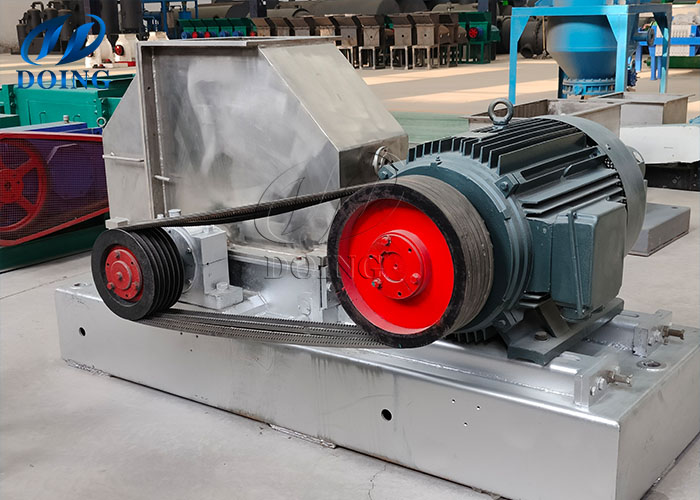 cassava rasper
cassava rasper
Possible Causes:
Inadequate separation of fibers during starch extraction.
Damaged or improperly sized sieve mesh.
Troubleshooting:
Inspect and clean the extraction sieve or centrifuge sieve regularly.
Replace the sieve mesh if it is torn or has oversized holes.
Adjust the water flow to ensure proper washing and separation of fibers.
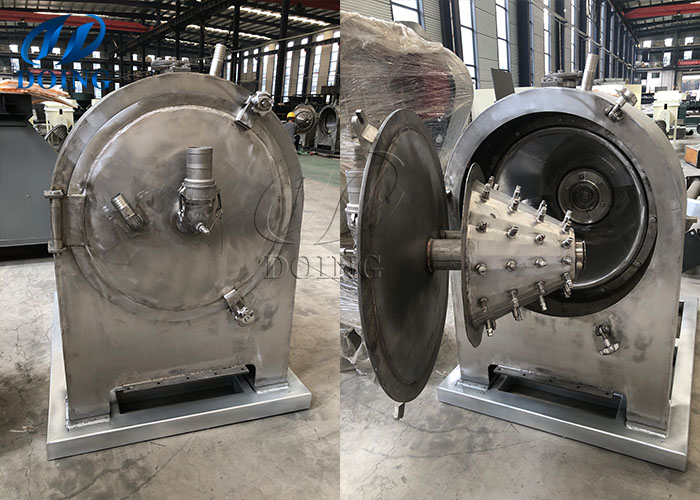 centrifuge sieve
centrifuge sieve
Possible Causes:
Excessive water usage during extraction.
Poor settling or dewatering efficiency.
Troubleshooting:
Optimize water usage to balance cassava starch extraction and water conservation.
Check the settling tanks or hydrocyclone stations for proper operation and ensure they are not overloaded.
Inspect and clean the peeler centrifuge regularly to make sure its normal dehydration.
Use flocculants to improve starch recovery from wastewater.
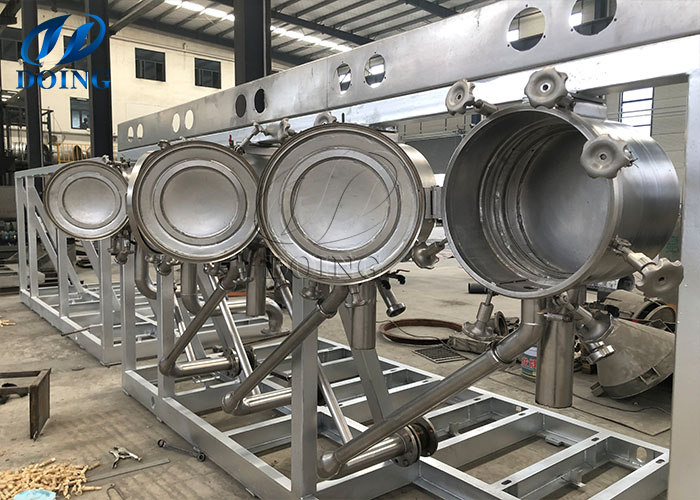 hydrocyclone station
hydrocyclone station
Possible Causes:
Accumulation of fibrous material or starch residues in sieves, pipes, or pumps.
Inadequate cleaning of cassava starch extraction equipment between batches.
Troubleshooting:
Regularly clean sieves, pipes, and pumps to prevent blockages.
Install filters or screens to trap large particles before they enter critical cassava starch extraction equipment.
Use high-pressure water or air to clear clogs.
Possible Causes:
Contamination from soil, roots, or equipment.
Inefficient purification or washing processes.
Microbial growth due to inadequate drying or storage.
Troubleshooting:
Ensure thorough cleaning of cassava roots before processing.
Optimize the purification process, like the use of 18-stage hydrocyclone station.
Use a negative pressure flash dryer to dry starch to the recommended moisture content (typically 12-14%) and store in a cool, dry place.
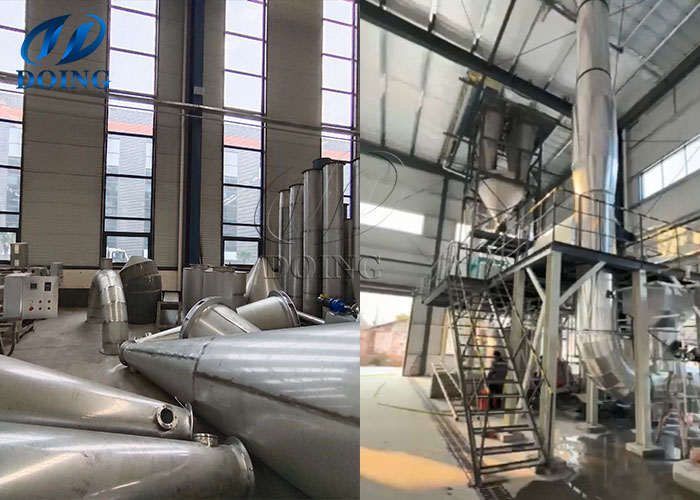 flash dryer
flash dryer
Possible Causes:
Excessive friction in cassava rasping or grinding machines.
Poor lubrication or maintenance of moving parts.
Troubleshooting:
Regularly lubricate bearings and other moving parts.
Monitor equipment temperature and reduce load if overheating occurs.
Ensure proper alignment of components to reduce friction.
Possible Causes:
Overloading of cassava processing equipment.
Inefficient motor or power supply issues.
Troubleshooting:
Avoid overloading equipment by feeding cassava at the recommended rate.
Check the motor and power supply for proper functioning.
Upgrade cassava starch extraction equipment if the current capacity is insufficient for the required throughput.
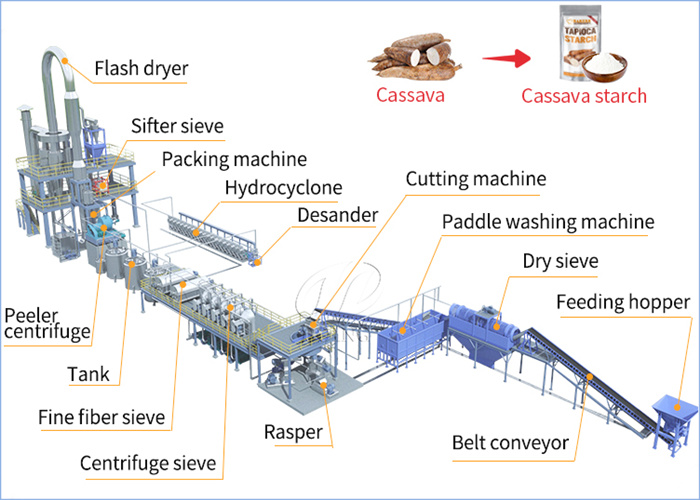 cassava starch processing line
cassava starch processing line
Regular Cleaning: Clean all cassava starch extraction equipment after each use to prevent residue buildup and contamination.
Lubrication: Regularly lubricate moving parts to reduce wear and tear.
Inspection: Conduct routine inspections to identify and address issues early.
Operator Training: Ensure operators are well-trained in equipment operation and maintenance.
The above is the introduction to common Issues in cassava starch extraction equipment and tips to troubleshoot them. We, Henan Jinrui, engaged in researching, developing, and manufacturing cassava starch extraction equipment for over 10 years, are pleased to give you more suggestions on the purchase and operation of cassava starch extraction equipment with our professional engineering team. Welcome to communicate with us!
Want to know more about our products or services? Fill out the contact form below, and we’ll to get back to you and you will get the price list. Please also feel free to contact us by email or phone.( * Denotes a required field).